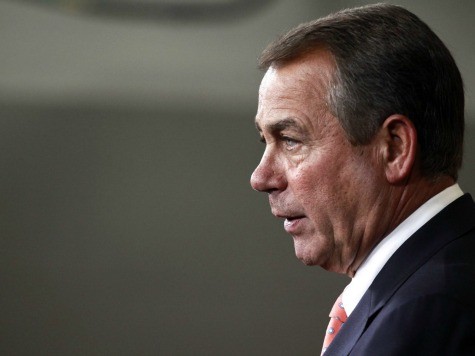Since 1917, Congress has asserted its constitutional authority to dictate just how America will finance its debt by statutorily limiting how much debt the Treasury Department can issue.
In theory, the debt ceiling is there to ensure that public debt is not recklessly piled up without Congress periodically acknowledging it and addressing out-of-control spending patterns. That sounds like the perfect opportunity for conservative Republicans to put the brakes on an ever-expanding federal government, but in practice, after numerous efforts in the era of Barack Obama, the debt limit fights have been unable to keep America’s outstanding debt from surpassing the once unimaginable $17.3 trillion mark this week.
Unfortunately, government has operated without a limit since last October in the agreement that ended the government shutdown. That was the second time the debt limit was suspended just in 2013, and now Congress plans on doing the same thing for an entire year. Without a firm limit in place, Treasury Secretary Jack Lew essentially has a blank check to borrow as much as Obama wants. Considering the ruthless and vindictive way Obama handled the shutdown negotiations along with his new threat to ignore Congress by expand the use of executive orders, a long-term debt ceiling suspension is frightening.
As we have witnessed, Obama is willing to hold the full faith and credit of the United States hostage until his demands are met. The liberal media is always quick to turn the optics against Republicans, which greatly diminishes their negotiating leverage. However, that should not make Republican Party leaders cower in the corner and be afraid of their fiscally responsible beliefs.
House Speaker John Boehner has abandoned his rule that any increase in the statutory borrowing limit must be accompanied by spending cuts of an equal value. Boehner shifted his position 180 degrees by requiring spending increases for Medicare reimbursement rates and undoing the same military pension cuts agreed to in Budget Committee Chairman Paul Ryan’s budget. That means Boehner and House leadership proposed somewhere in the ballpark of a $25 billion spending increase over the next ten years! With friends like that, who needs Democrats?
This would have been the perfect opportunity for Republicans to negotiate for common-sense policy ideas, such as trading a ceiling increase in exchange for preventing the Obamacare bailout for insurance companies, restructuring the tax code, or implementing a balanced budget amendment. However, thanks to a limited time schedule and the House leadership’s inability to articulate a fiscally responsible position, even the staunchest House conservatives were left with only one option: a clean debt ceiling vote. Now, the goal of conservatives is to allow Democrats the ability pass the debt-ceiling hike almost entirely on their own, so that they can be blamed for reckless spending during the upcoming election cycle.
Speaker Boehner once again squandered an opportunity to reign in out-of-control government spending, and we, the taxpayers, will literally be paying for it.

COMMENTS
Please let us know if you're having issues with commenting.